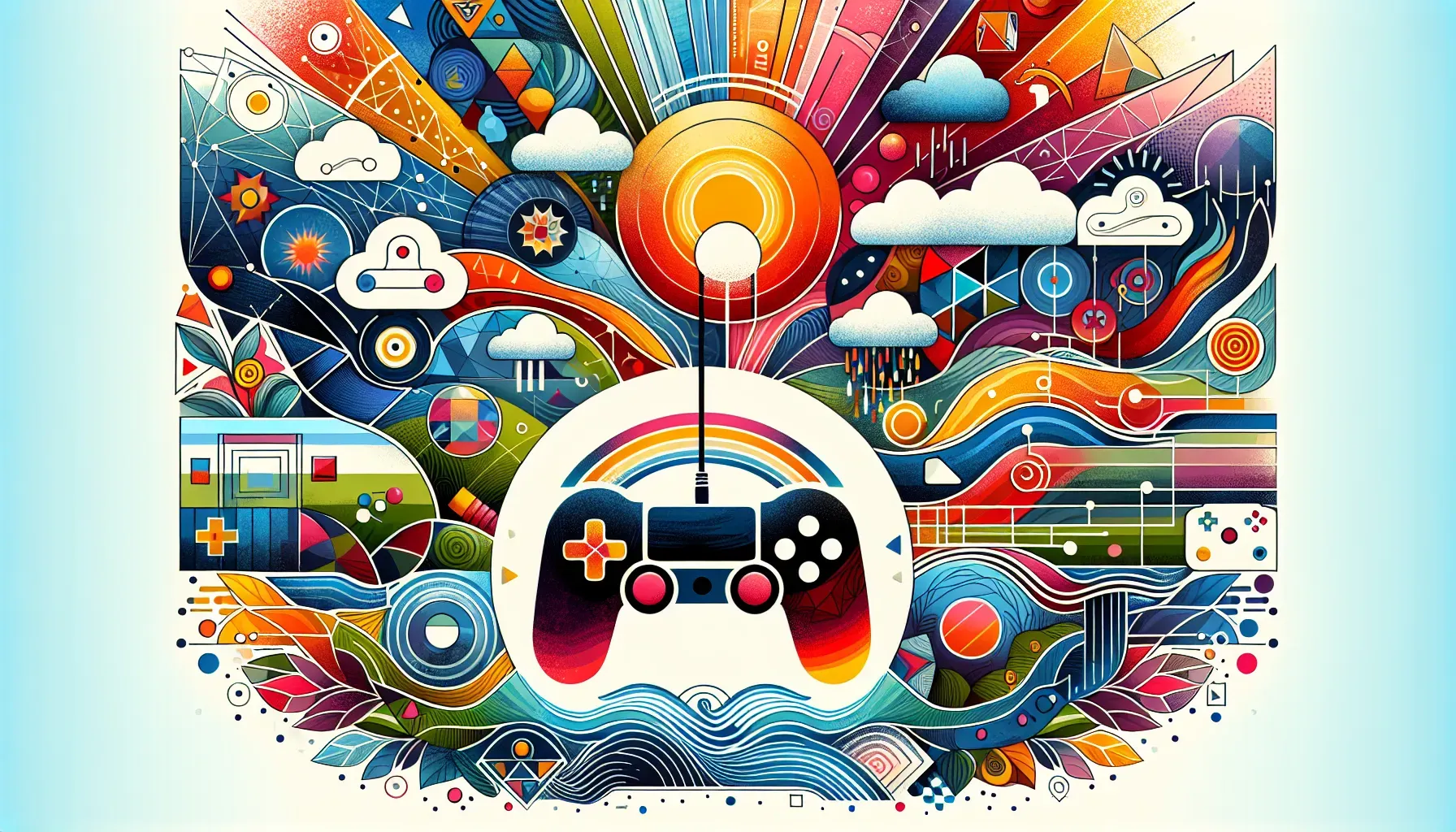Autistic Heroes in Video Games: Exploring Representation and Player Engagement

In recent years, the representation of autistic characters in video games has sparked conversations about inclusivity and the impact of gaming on neurodiverse individuals. As we look to the future, it's essential to delve into the potential trends and advancements shaping the portrayal of autistic heroes in video games and their influence on player engagement. Let's explore the evolving landscape of inclusive character storylines, interactive accessibility features, empathetic gameplay experiences, and their role in challenging stigmas through immersive virtual narratives.
Representation of Autistic Characters in Video Games
The inclusion of autistic heroes in video games has contributed to a more diverse and representative gaming landscape. As we move forward, we anticipate a significant shift towards more nuanced and authentic portrayals of autistic characters. Game developers are increasingly recognizing the importance of crafting storylines that authentically capture the experiences of individuals on the autism spectrum while avoiding stereotypes or misconceptions.
Impact of Inclusive Character Storylines on Gaming Communities
By incorporating multifaceted narratives that sensitively depict the challenges and triumphs of autistic heroes, video games have the potential to foster empathy, understanding, and acceptance within gaming communities. The future holds promise for more collaborative efforts between game developers and autism advocates to ensure that inclusive character storylines resonate with both neurodiverse players and broader audiences.
Looking ahead, advancements in interactive accessibility features are poised to revolutionize the gaming experience for neurodiverse individuals, including those with autism. Game developers are actively integrating customizable settings that cater to a spectrum of sensory sensitivities, motor skills differences, and cognitive preferences.
Related Article: The Power of Autistic Creativity: Unveiling Unique Artistic Talents
Interactive Accessibility Features for Neurodiverse Players
From adjustable difficulty levels to visual and auditory customization options, these features are designed to provide a tailored gaming experience that accommodates the diverse needs of players. As technology continues to advance, we anticipate an expansion of interactive accessibility features that prioritize inclusivity without compromising gameplay quality, ultimately fostering a more welcoming and engaging environment for neurodiverse players.
The future outlook for video games embraces the concept of designing empathetic gameplay experiences that transcend traditional narratives. Game developers are exploring innovative ways to incorporate mechanics that promote emotional intelligence, social cognition, and interpersonal dynamics, offering an inclusive space for players of all backgrounds.
In relation to autistic heroes in video games, this forward-looking approach involves creating gameplay mechanics that encourage players to understand and navigate the world from diverse perspectives – including those associated with autism. By prioritizing empathy-driven interactions and decision-making processes, video games can catalyze meaningful experiences that resonate with a broad spectrum of players while celebrating neurodiversity.
Designing Empathetic Gameplay Experiences for All Audiences
As we peer into the future of video game storytelling, there is a growing emphasis on challenging stigmas associated with autism through immersive virtual narratives. Game narratives have evolved beyond mere entertainment value, serving as powerful vehicles for fostering awareness, debunking myths, and reshaping perceptions surrounding autism.
In the years to come, we anticipate an upsurge in narrative-driven video games that authentically depict the lived experiences of autistic individuals, offering players an opportunity to engage with compelling stories that dismantle stereotypes and highlight the unique strengths of neurodiverse protagonists. By elevating autistic heroes within immersive virtual narratives, video games position themselves as catalysts for broader societal conversations about inclusivity, empathy, and acceptance.
Related Article: The Artistic Expression of Autism: Exploring Creativity in Autistic Individuals through Popular Art Forms
Challenging Stigmas through Immersive Virtual Narratives
In conclusion, the evolving representation of autistic heroes in video games carries profound implications for player engagement and societal attitudes towards autism. Embracing inclusive character storylines, interactive accessibility features, empathetic gameplay experiences, and immersive virtual narratives signifies a promising trajectory towards a gaming landscape that reflects the diversity of human experiences while nurturing empathy and understanding among players.
Frequently Asked Questions
The inclusion of autistic heroes in video games enhances diversity and representation within gaming communities. Developers are increasingly creating authentic storylines that reflect the experiences of individuals on the autism spectrum, fostering empathy and understanding. This shift not only benefits neurodiverse players but also engages broader audiences, promoting acceptance and collaboration between developers and autism advocates.
Interactive accessibility features are transforming the gaming experience for neurodiverse individuals by offering customizable settings tailored to various sensory sensitivities and cognitive preferences. These advancements include adjustable difficulty levels and visual or auditory customization options, ensuring a more inclusive environment. As technology evolves, the focus on accessibility will continue to enhance gameplay quality for all players.
Empathetic gameplay experiences aim to transcend traditional narratives by promoting emotional intelligence and social cognition. Developers are designing mechanics that encourage players to understand diverse perspectives, including those associated with autism. This approach fosters meaningful interactions and decision-making processes, creating an inclusive space that resonates with a wide range of players while celebrating neurodiversity.
Immersive virtual narratives in video games serve as powerful tools for challenging stigmas surrounding autism. By authentically depicting the lived experiences of autistic individuals, these narratives foster awareness and reshape perceptions. Players engage with compelling stories that dismantle stereotypes, highlighting the unique strengths of neurodiverse protagonists and promoting broader societal conversations about inclusivity and empathy.
Representation of autistic characters in video games is crucial for fostering a more inclusive gaming landscape. It allows for authentic portrayals that reflect the challenges and triumphs faced by individuals on the autism spectrum. This representation not only enhances player engagement but also promotes understanding and acceptance among diverse audiences, ultimately enriching the gaming experience for everyone.
Yes, video games can promote empathy by incorporating gameplay mechanics that encourage players to navigate diverse perspectives. By engaging with characters from various backgrounds, including autistic heroes, players develop a deeper understanding of different experiences. This empathetic approach can lead to meaningful interactions and foster a sense of connection among players, enhancing their overall gaming experience.
Check Out These Related Articles

Creative Alliances: How Art and Science Converge to Support Autistic Expression

Portrayal of Autism in Hollywood: Impact on Public Perception and Understanding

Musical Melodies: Exploring the Transformative Power of Music in Autism Support
